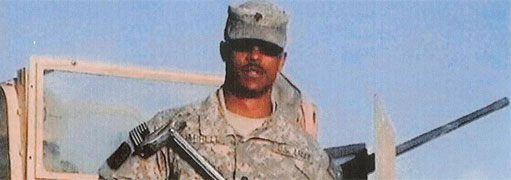Return Fire: Soldier Files A Racism Complaint About His Superiors
Soldier Files A Racism Complaint About His Superiors


Spc. Adam Jarrell was stationed in Afghanistan for a year with New Mexico’s National Guard. During that time, someone hung a noose outside his sleeping quarters, according to a complaint filed by the American Civil Liberties Union.
Courtesy of Adam Jarrell




